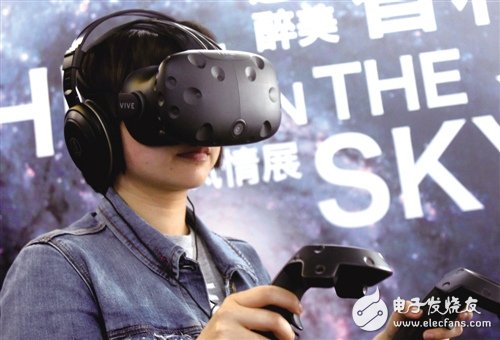On May 11, 2016, CES Asia 2016 opened in Shanghai, including more than 300 companies from 23 countries or regions including China, Finland, France, Germany, India, Israel, the United Kingdom, and the United States. Exhibition.
The theme of the Asia Consumer Electronics Show is “Internet of Thingsâ€, “Innovation†and “Interconnectedâ€. The products displayed include 15 categories including 3D printing, automotive technology, life technology and video games.
It is worth noting that with the saturation of the smartphone market, mobile phones are no longer the focus of attention at the CES conference. The 21st Century Business Herald reporter saw on the scene that few companies used mobile phones as the focus of the show in the exhibition area. Only Huawei, Samsung, LeTV, 360 and other companies displayed some mobile phone products.
However, even LeTV and 360 use mobile phones as a medium to demonstrate the application of their ecological chain and IoT technology. The lack of innovation has made mobile phones more and more a necessity for people's lives, and lost the imagination of upward development.
This seems to indicate that the smartphone industry is entering a period of slow growth after experiencing rapid rush in recent years.

Car, VR eye-catching
The industry once believed that 2016 will be the commercial first year of virtual reality.
Guo Fuhua, vice chairman of China Smart City Forum, revealed that wearable electronic devices have entered a period of rapid development, and global wearable device shipments increased by 164% in 2015. In addition, virtual reality will also become another point of explosion. The relevant agencies predict that the annual growth rate of virtual reality from 2015 to 2020 will reach 59%.
This time, Sony, Microsoft, HTC, Samsung, Google and other companies' VR products were unveiled at the show, and visitors were happy to try out various VR devices. Last year's outstanding driverless and automotive technology, this year not only continues to be a hot spot, but also more traditional car companies and Internet companies are involved.
According to the information released by the organizers, more than 25 OEMs and related automotive technology suppliers such as Audi, BMW, Baidu.com, Mercedes-Benz and Volvo participated in the exhibition. It is understood that Baidu will show its latest achievements in the Internet of Vehicles at the exhibition, and Audi's new self-driving concept car will also be the world's first show.
However, when the various "black technologies" mentioned above can enter the life of ordinary users, they still have to wait for the time.
Gu Wei, vice president of Suning Yunshang Marketing Headquarters, said in an interview with the 21st Century Business Herald that the popularity of any product needs to go through several processes, one is to meet the differentiated needs of consumers, and the other is simple and easy to use. Smart home products are more advanced, and if the operation is not simple, then it will not go into thousands of households. "Of course, there are two very important factors in it. One is consumer education, and the other is that sales channels need to be combined online and offline to make it easier for consumers to reach the product."
Smartphone scenery is no longer
All along, the major brands will be eager to participate in various exhibitions and product briefings during the exhibition to expand their influence. However, this year, few brand manufacturers held a press conference for their mobile phone business.
It is not difficult to find that as the market competition intensifies, the smartphone industry has also appeared on the ceiling. A few days ago, Apple’s latest financial report showed that iphone sales that had swept the world were down 32% from the same period last year. Apple's performance has therefore fallen sharply, and net profit fell 22% year-on-year.
The latest data released by international data company IDC also shows that in the first quarter of this year, Samsung, Apple and Huawei occupied the top three in the global smartphone market. OPPO and Vivo replaced Lenovo and Xiaomi respectively, becoming the world's fourth and fifth largest smartphone manufacturers, and Xiaomi and Lenovo fell out of the top five. The agency predicts that as of the end of March, Lenovo Group's smartphone shipments were 10.8 million units, a sharp drop of 42% year-on-year and a 46% quarter-on-quarter decline.
Gu Wei revealed that there has been no significant growth in smartphone sales throughout China this year. Suning Cloud has seen a 40% increase in mobile phone business in the past quarter. “Every consumer is happy and new, and any product will have aesthetic fatigue for a long time. When the work of domestic brand mobile phones is getting stronger and stronger, there will be many consumers who choose them.â€
He believes that the Chinese mobile phone industry has also begun the stage of integration, and the boundaries between online and offline brands are becoming increasingly blurred. In the future, there will be no more than 10 mobile phone brands in China, and mobile phones will enter the era of branding. The way to win by low-cost money will no longer work.
Bar Mat,Bar Floor Mats,Custom Bar Mat,Bar Table Mat
Cixi Mingsheng Rubber & Plastic Co.,Ltd. , https://www.cixidoormats.com